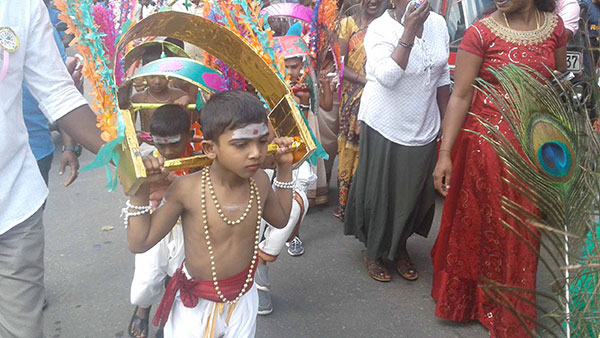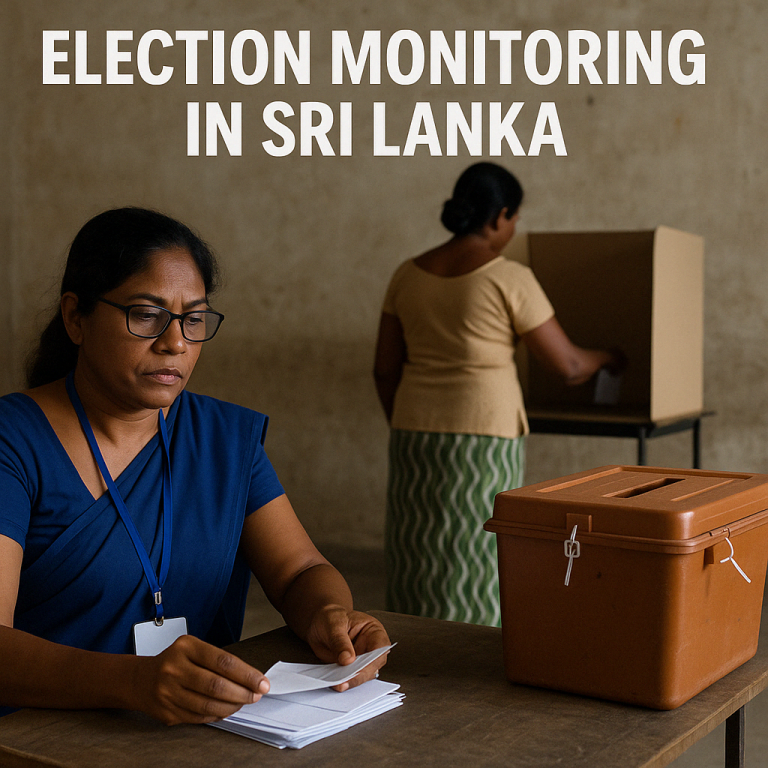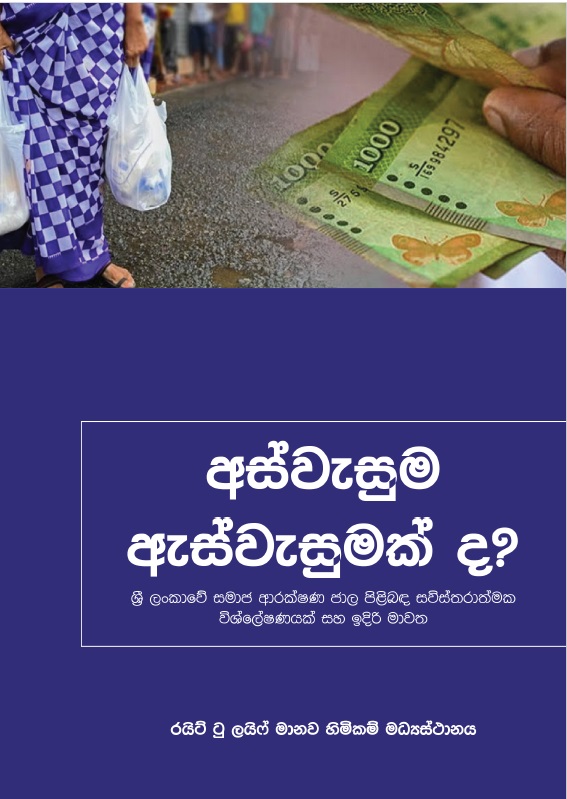By C. A. Chandraprema
Whenever we hear the term Truth and Reconciliation Commission (TRC), what comes to mind is the body by that name established in South Africa in 1995, headed by Archbishop Desmond Tutu. The South African TRC may not have been the first of its kind, but it was undoubtedly the one that gained the most public attention and the most accolades. Rightly so, because the South African TRC was a sincere effort at truth telling, healing and reconciliation and not an attempt to continue a war by other means.
South African TRC
The South African Truth and Reconciliation Commission was set up under the provisions of South Africa’s Promotion of National Unity and Reconciliation Act No. 34 of 1995. The purpose of this body was firstly the investigation and the establishment of as complete a picture as possible of the nature, causes and extent of gross violations of human rights committed during the period from 1 March 1960 to the end of the apartheid era. Secondly, the granting of amnesty to persons who make full disclosure of all the relevant facts relating to acts associated with a political objective committed in the course of the conflicts of the said period. And thirdly, affording victims an opportunity to relate the violations they suffered; the adoption of measures aimed at the granting of reparation to, and the rehabilitation and the restoration of the human and civil dignity of, victims of violations of human rights.
The South African TRC functioned through three Committees – the Committee on Human Rights Violations, the Committee on Amnesty and the Committee on Reparation and Rehabilitation. The provision for amnesty was the centrepiece of the TRC process. The Act of Parliament that set up this body stated that “there is a need for understanding but not for vengeance, a need for reparation but not for retaliation, a need for Ubuntu (humanity towards others) but not for victimization”. It was the task of the Committee on Amnesty to consider applications for amnesty. The Act in question had to be associated with a political objective committed in the course of the conflicts of the past and the applicant had to make a full disclosure of all relevant facts. The amnesty was available to both anti-government guerillas as well as members of the security forces for acts committed bona fide with the object of countering or resisting the armed liberation struggle.
The South African TRC did have an investigating unit headed by a Commissioner to support the Commission and the Committees of the Commission in carrying out inquiries and investigations. The Committee on Human Rights, for instance, did carry out investigations into human rights violations from 1960 to the end of the apartheid era. When the Human Rights Committee finds that a gross violation of human rights has been committed and that a person is a victim of such violation, it was required by law to refer the matter not to the Attorney General or the Courts but to the Committee on Reparation and Rehabilitation.
If any person is questioned by the Commission, any incriminating evidence directly or indirectly derived from such a questioning was not admissible as evidence against the person concerned in criminal proceedings in a court of law. Hence the South African TRC was not an inquisitorial or punitive body but an institution genuinely designed to promote truth telling, healing and reconciliation between rival sides in a long drawn out conflict.
Sri Lanka’s proposed TURC
A Bill to establish a Truth, Unity and Reconciliation Commission (TURC) in Sri Lanka has now been gazetted. Despite the name, what has been proposed for Sri Lanka is completely different from the South African TRC. While the provision for amnesty for persons on both sides of the conflict was the centrepiece of the South African TRC, the proposed Sri Lankan TURC has no provision for amnesty at all. What the proposed Bill seeks to establish is an inquisitorial commission which will conduct investigations, and make recommendations. The findings of the Commission’s investigations can also be referred to the Attorney General for criminal prosecution.
Under Clauses 7(1) and 12(1) the purpose of the Commission will be to receive and collect information and material and investigate, inquire, and make recommendations in respect of complaints or allegations or reports relating to alleged violation of human rights anywhere in Sri Lanka, which were caused in the course of, or reasonably connected to, or consequent to the conflict which took place in the Northern and Eastern Provinces during the period 1983 to 2009, or its aftermath.
Under Clause 12 (2) the scope of the investigations to be carried out by the proposed body extends from killings, torture, sexual violence, abduction, unlawful arrests or detentions all the way to corruption and intentional misuse of equipment and financial resources in relation to the conflict which took place in the Northern and Eastern provinces. The proposed law also requires that the TURC inquire into whether any of the alleged violations and abuses were committed as part of ‘systemic crimes’. The TURC is also required to make findings in regard to those responsible for the commission of the alleged violations and abuses, including those who advised, planned, directed, commanded or ordered such atrocities;
Trial at Bar style investigative panels
Under Clause 7(2), investigations and inquiries will be conducted by panels consisting of not fewer than three members of the Commission. The Chairperson of the Commission will appoint the investigative panels the way the Chief Justice appoints judges to a Trial at Bar.
Sweeping powers to investigate
Under Clauses 13(s), 13(t), 13(z), 13(za), 14 and 45 the proposed Commission is to be accorded sweeping powers to conduct its investigations including the requisition of reports, records, documents or information from governmental authorities or any other source and to compel the production of such material. The Commission can summon any person residing in Sri Lanka to attend any hearing to provide information or produce any document or other thing in such person’s possession. The Commission can make an application to a Magistrate for the issuance of a search warrant to enable the Police to search any premises suspected to contain material relevant to an investigation being conducted by the Commission.
All persons including members of the Government and public officials are mandatorily required to co-operate with the Commission. If any person fails to appear before the Commission, refuses to answer any question or fails to produce any document or other thing, which is in his possession or control such person shall be guilty of contempt against the authority of the Commission which shall be punishable by the Court of Appeal as though it were an offence of contempt committed against the Court of Appeal.
Overriding powers of the Commission
Under Clauses 15(1) and (2) the Commission shall submit its final report to the President at the expiration of its term along with its recommendations. It is also required to submit interim reports to the President bi-annually with recommendations and such reports will be tabled in Parliament within three weeks of their receipt. Under Clause 39, within one month from the date of publication of the first interim report of the Commission the President shall establish a Monitoring Committee to implement the recommendations of the Commission.
According to Clause 12(f) the Commission is required to make recommendations with regard to institutional, administrative and legislative policy and resource allocation measures that should be taken to prevent, and ensure non-recurrence of damage to persons or property or violation of human rights and to promote reconciliation. Such recommendations could have wide ranging implications for the country and the people. Yet, these recommendations are to be implemented forthwith by a Monitoring Committee without being referred to Cabinet or debated in Parliament first.
Under Clause 40 the Monitoring Committee has to submit bi-annual reports to the President on the implementation of the recommendations of the Commission. Where the implementation of any recommendation has not been fully complied with, the reports of the Committee shall include the reasons for non-implementation. Such reports by the Monitoring Committee will be tabled in Parliament within two weeks of receipt. Thus, Parliament is kept informed of the actions of the Commission only after the fact, with the Cabinet and Parliament having no role in deciding whether the implementation of a particular recommendation of the Commission should be carried through or not.
Foreign funding and control
Under Clause 13(g) the Commission may enter into agreements with any person or entity necessary to achieve the objectives of the Commission. Under Clause 13(k) the Commission is empowered to seek technical assistance from any person or institution or organisation in the interest of advancement of the commission’s work. Under Clauses 13(h) and 35(1)(c) the Commission is empowered to raise funds by obtaining grants, gifts or endowments. All funds received from outside Sri Lanka have to be channelled through the External Resources Department. Though Clause 11 of the Bill states that the Commission shall be considered an autonomous institution and shall not be subject to the control or direction of any person or authority, we know through experience that the foreign parties that will fund this operation will control it.
Actively seeking questionable evidence
Clause 13(x) empowers the proposed Commission to receive information in confidence from any person, where in the opinion of the Commission, the disclosure of such information would pose a risk to life or security of any person. The Commission will thus end up making recommendations based on information that nobody else knows anything about and the veracity of which cannot be checked. The Commission cannot be compelled to disclose the identity of any person supplying information in confidence.
Clause 13(y) empowers the Commission to admit, notwithstanding any provision of the Evidence Ordinance, any information, whether written or oral, which might be inadmissible in civil or criminal proceedings in order to facilitate truth seeking. Thus, the Commission bases its recommendations on dodgy evidence that the normal justice system would not touch.
Clause 13(z) empowers the Commission to seek assistance from community leaders and organisations to facilitate its public sessions. In practice, this becomes an open invitation to ‘syndicates’ of informers, narrators and witnesses as has often transpired at trials before the International Criminal Court.
Referral to the AG for prosecution
Clause 48 says that no evidence of any statement made or given by any person to or before the Commission shall be admissible against that person in proceedings in any civil or criminal court. Clause 16(1) states that the Commission’s recommendations shall not be deemed to be a determination of civil or criminal liability of any person.
However, Clause 13(zd) empowers the Commission to refer matters to the relevant law enforcement or prosecuting authorities of Sri Lanka for further investigation and necessary action, where it appears to the Commission that an offence or offences punishable under the Penal Code or any other law of Sri Lanka has been committed. Clause 16(2) states that notwithstanding anything to the contrary in the Code of Criminal Procedure Act, No. 15 of 1979 or any other law, it shall be lawful for the Attorney-General to institute criminal proceedings in a designated court of law in respect of any offence based on material collected in the course of an investigation or inquiry by the Commission established under this Act.
Thus, what is being proposed for Sri Lanka is not a truth and reconciliation commission at all but a body which will, with the backing of foreign and local sponsors, wage law-fare against those who won the war against terror and seek to make wide ranging changes in Sri Lanka without any need to have those proposed changes vetted and approved by Cabinet and Parliament first.
The Island







